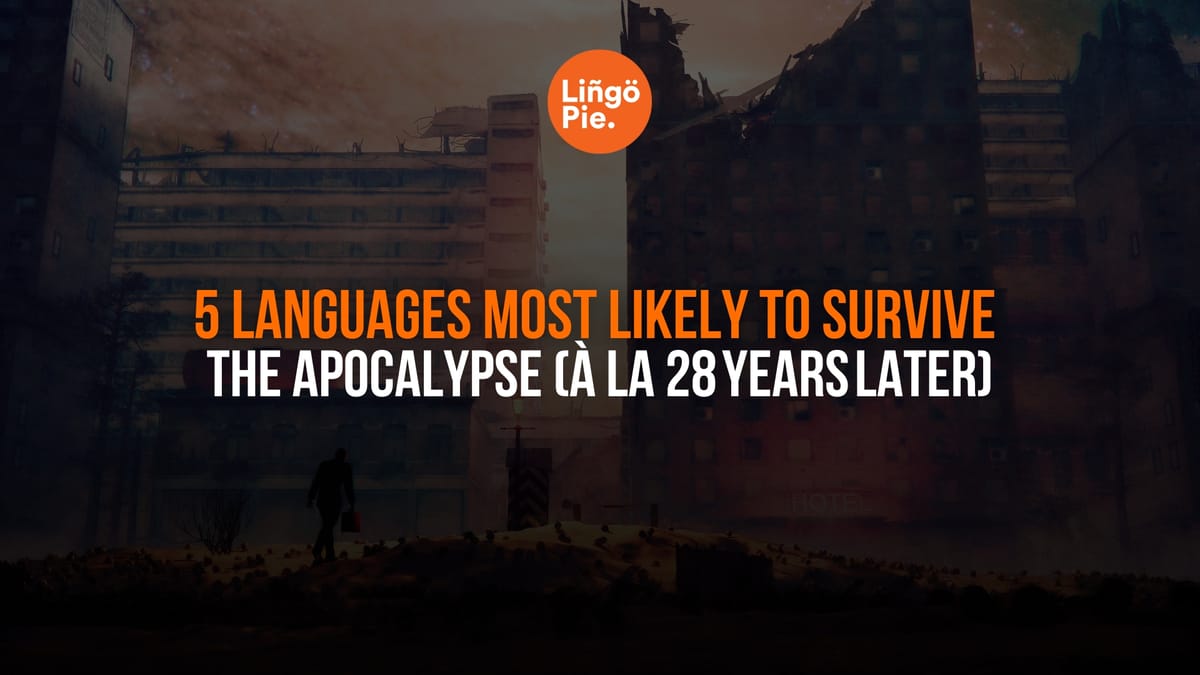Learning Hebrew is exciting, especially when you start recognizing words in shows, songs, or real conversations. But if you're only focusing on formal grammar and textbook phrases, your Hebrew might not match what people are actually saying.
To really connect with Israelis — and to understand fast, casual Hebrew — you need to learn slang. It’s the part of the language that’s emotional, funny, expressive, and totally alive.
You’ll hear slang on the streets of Tel Aviv, in WhatsApp chats, on reality TV, and in Israeli comedies and dramas. That’s why slang is one of the most useful and natural parts of the language to learn, especially if you’re doing it from outside of Israel.
And the best way to learn it? Watch how native speakers use it on TV. More on that in a minute.
- 50 Basic Hebrew Phrases For Travelers
- Is Hebrew Hard To Learn?
- Language Difficulty Ranking For English Speakers

Who Is Hebrew Slang For?
Whether you're learning Hebrew for travel, connecting with Israeli family or friends, or just obsessed with Israeli TV and pop culture, slang is essential. It’s the part of the language that locals use every day — not just in jokes and casual chats, but in social media, text messages, and even some workplace conversations.
If you're just starting out, slang helps you sound more natural and confident, even with limited vocabulary. If you're an intermediate learner, it adds personality, authenticity, and emotional expression to your Hebrew. And if you're just a fan of the culture, slang is one of the most fun ways to understand Israeli humor, rhythm, and daily life.
Now that you know why slang matters and who it’s for, let’s go through the expressions you’ll actually hear (and want to use).

18 Hebrew Slang Words You Can Use Today
One of the easiest and most effective ways to learn these slang terms in context is by watching Israeli TV shows. Lingopie (Hebrew coming soon) makes that easy, with clickable dual subtitles, real shows, and tools built for language learners. But first, here’s the slang you’ll want to know.
Sababa (סבבה)
This is the Israeli go-to word for “cool,” “great,” or “no problem.” It originally came from Arabic but has become completely integrated into modern Hebrew. People use it in almost every casual situation, whether they’re agreeing to plans, reacting to good news, or just expressing that everything is okay.
Yalla (יאללה)
“Yalla” means “let’s go,” “come on,” or “okay, time to move.” It comes from Arabic and expresses urgency or encouragement in a warm, energetic way. It’s heard everywhere from parents rushing their kids to friends trying to get each other out the door.
Balagan (בלגן)
This word means “a mess,” and it can be physical, emotional, or even political. It originally came into Hebrew through Russian and Polish, and Israelis now use it to describe anything chaotic or disorganized. It’s often used to complain or laugh about situations that are just out of control.
Tachles (תכל'ס)
Tachles means “let’s get to the point” or “bottom line.” It has roots in Yiddish and reflects a very Israeli communication style — direct, no fluff, and practical. It’s often used in conversations where someone wants to stop beating around the bush and speak honestly.
Achla (אחלה)
This is a casual and friendly way to say “awesome” or “really good.” The word has Arabic origins and is one of the most common compliments in spoken Hebrew. People use it to talk about everything from food to someone’s idea to the weather.
Achi / Achoti (אחי / אחותי)
These literally mean “my brother” and “my sister,” but they’re used like “bro” and “sis” in English. They add a sense of closeness and camaraderie, even between strangers. You’ll hear this a lot among soldiers, teenagers, and anyone trying to build quick rapport.
Stam (סתם)
Stam means “just kidding,” “for no reason,” or “not really.” It’s a casual way to walk something back or downplay it. It’s especially useful in friendly conversations to soften a comment or to end a sentence with a playful tone.
Chaval al HaZman (חבל על הזמן)
The literal meaning is “shame about the time,” but slang flipped it to mean something is absolutely amazing. It’s one of those ironic phrases where the meaning depends entirely on tone and context. Israelis use it when they want to say something was worth every second — like a great concert, vacation, or meal.
Bassa (באסה)
Bassa means “bummer” or “what a drag.” It’s another word that came from Arabic and expresses disappointment in a soft, empathetic way. People use it in daily conversation when reacting to bad news or unfortunate situations.
Chai Be’Seret (חי בסרט)
This phrase means “living in a movie,” and it refers to someone who’s out of touch with reality. It’s usually said jokingly or with a bit of sarcasm, like when someone is being dramatic or overly optimistic. You’ll hear this among friends teasing each other.
Shtuyot Ba’Mitz (שטויות במיץ)
This colorful phrase means “nonsense in juice,” and it's used to say that something is completely ridiculous. It’s one of those expressions that sounds silly but delivers the message clearly. People usually use it in a playful tone when they don’t believe what they’re hearing.
Kapara Aleicha (כפרה עליך)
Kapara Aleicha literally means “atonement on you,” but in slang, it’s a loving expression like “sweetheart” or “darling.” It comes from Sephardic Jewish tradition, where saying it was a spiritual way to take on someone else’s burden. Today, it’s still used warmly by vendors, family members, or anyone being sweet or playful.
Met Alecha / Holeh Alecha (מת עליך / חולה עליך)
These both mean “I’m crazy about you” or “I’m obsessed with you.” The literal translation is “dead for you” or “sick for you,” which sounds intense, but it’s often said in a flirty or enthusiastic way. It’s common in romantic relationships, close friendships, or when talking about something you really love.
Mah Pitom (מה פתאום)
Mah Pitom is a sharp “No way!” or “What are you talking about?” The literal meaning is “what suddenly,” but it’s always used as a quick rejection or surprise response. It works best when someone makes an unexpected suggestion or claim that seems totally off.
Kol HaKavod (כל הכבוד)
This means “all the respect” or “good job.” It’s a genuine and versatile compliment used for anything from a small success to a major achievement. Teachers, managers, and even friends use it to recognize effort or give praise.
Al HaPanim (על הפנים)
Al HaPanim literally means “on the face,” but in slang it means “terrible” or “awful.” It’s used to describe anything that went really badly, whether it’s a day, a situation, or even someone’s mood. It’s often used with sarcasm or frustration.
Walla? (וואלה?)
Walla can mean “Really?” or “No way?” depending on the intonation. It comes from Arabic and has become one of the most flexible words in modern Hebrew. It can also mean “seriously” or even “yep,” so it’s all about tone and delivery.
חחח
This is the Hebrew version of “haha,” just typed out with the letter ח. It’s mostly used in texts and online chats, and the number of ח’s shows how hard you’re laughing. It’s simple, expressive, and used all the time.
Start Learning Hebrew Slang with Lingopie
You don’t have to live in Israel to start picking up slang and sounding more natural in Hebrew. Lingopie just rolled out Hebrew, giving you a fun, immersive way to learn the language by watching real Israeli shows filled with slang, idioms, and everyday expressions.
You can click on any word while you watch to see its meaning, hear the pronunciation, and even save it as a flashcard. Over time, you’re not just learning — you’re absorbing the rhythm, culture, and real-life usage of Hebrew.
Now that Hebrew is live, you can test it out and see for yourself why this is the most fun you’ve ever had learning slang.
Frequently Asked Questions About Hebrew Slang
What is “cool” in Hebrew slang?
The most common slang word for “cool” in Hebrew is sababa (סבבה). It means “great,” “awesome,” or “no problem,” and you’ll hear it in all kinds of casual conversations. It’s short, upbeat, and used by almost everyone in Israel.
What does “bamba” mean in Hebrew?
Bamba (במבה) is not slang. Instead, this word refers to the name of a popular Israeli peanut-flavored snack. It’s often referenced in Israeli pop culture because it’s so iconic. Sometimes people jokingly say “I was raised on Bamba” to mean they grew up Israeli.
Why do Israelis say “yalla”?
Yalla (יאללה) means “let’s go” or “come on.” It comes from Arabic and is used to encourage, hurry, or move things along. It’s one of the most common slang words in everyday Hebrew.
What is Hebrew slang called?
There’s no special word for Hebrew slang, but it’s often just referred to as “slang” or “slangim” (סלנגים) in Hebrew. The slang itself includes words borrowed from Arabic, Yiddish, English, and Russian. It reflects how Israelis speak in informal, real-life settings.
What is “bro” in Hebrew slang?
In Hebrew slang, “bro” is achi (אחי) which literally means “my brother.” It’s a friendly, casual way to address someone like “dude” or “man” in English. You’ll hear it constantly among friends, especially younger people and soldiers.







![How To Say I Love You In Hebrew [Guide]](/blog/content/images/size/w300/2026/02/How-To-Say-I-Love-You-In-Hebrew-.png)
![How To Say Happy New Year In Hebrew [15+ Terms And Phrases]](/blog/content/images/size/w300/2025/12/how-to-say-happy-new-year-In-hebrew.jpeg)
